The NJI's Judicial Leaders
CURRENT
The Honourable Justice Tom Crabtree
Chief Judicial Officer

An accomplished jurist and strong advocate of judicial professional development, Justice Crabtree joined the NJI as Chief Judicial Officer after having served on its Board of Governors as a representative of the Canadian Council of Chief Judges. He has had a distinguished career on the bench. First appointed to the Provincial Court of British Columbia in 1999, he became Chief Judge in 2010. He was appointed to the Supreme Court of British Columbia in 2018. Throughout his career, Justice Crabtree has shown a deep interest in Indigenous issues. While Chief Judge in B.C., he worked with Indigenous communities to develop five new Indigenous Sentencing Courts and a new approach to resolving cases involving Indigenous children in care. He has also pioneered the use of technology not only to make the work of his Court more transparent, accessible, and efficient, but also to engage with the public. Justice Crabtree has contributed to many judicial education initiatives in Canada and abroad. He has been active on court education committees, as a member of the judicial planning committee for numerous NJI national programs, and as a valued faculty member.
PAST
The Honourable Justice C. Adèle Kent
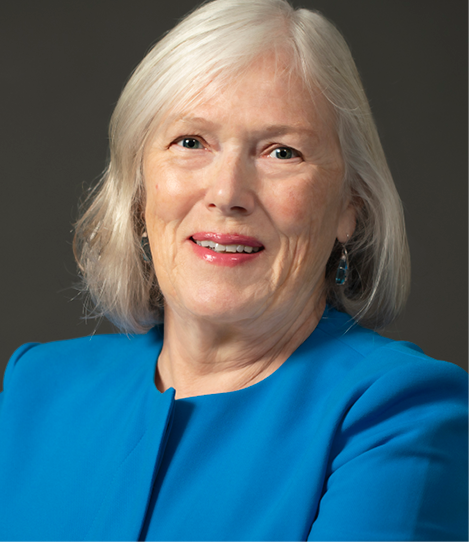 As the NJI’s Executive Director (2014-2019) and its first Chief Judicial Officer (2019-2021), Justice Kent has left a lasting mark on the institute. Her leadership and initiative contributed to a new governance model, the transition to a new, more stable funding model, and the implementation of a rigorous NJI curriculum review. Prior to becoming Executive Director, Justice Kent was a dedicated contributor to NJI judicial education seminars, publications, and international projects. As a judge on the Court of Queen’s Bench of Alberta, to which she was appointed in 1994, Justice Kent worked on numerous NJI courses covering topics including judicial ethics, science, and civil law. She also assisted the judiciaries of other countries in the design of judicial education courses. As the Institute’s judicial leader, Justice Kent oversaw its shift to offering a greater variety of digital products, including on-demand self-study courses, webinars, and podcasts. When the pandemic arrived, the NJI quickly pivoted from offering in-person programs to delivering its seminars entirely online. Justice Kent’s previous experience in preparing a pandemic response plan for her Court when H1N1 threatened Alberta proved useful. Justice Kent is the author of a book on medical ethics and has been a member of the Public Information Committee of the Canadian Judicial Council as well as the National Advisory Committee on Judicial Ethics, first as a member and then as co-chair. Justice Kent became the NJI’s first CJO Emerita in 2021.
As the NJI’s Executive Director (2014-2019) and its first Chief Judicial Officer (2019-2021), Justice Kent has left a lasting mark on the institute. Her leadership and initiative contributed to a new governance model, the transition to a new, more stable funding model, and the implementation of a rigorous NJI curriculum review. Prior to becoming Executive Director, Justice Kent was a dedicated contributor to NJI judicial education seminars, publications, and international projects. As a judge on the Court of Queen’s Bench of Alberta, to which she was appointed in 1994, Justice Kent worked on numerous NJI courses covering topics including judicial ethics, science, and civil law. She also assisted the judiciaries of other countries in the design of judicial education courses. As the Institute’s judicial leader, Justice Kent oversaw its shift to offering a greater variety of digital products, including on-demand self-study courses, webinars, and podcasts. When the pandemic arrived, the NJI quickly pivoted from offering in-person programs to delivering its seminars entirely online. Justice Kent’s previous experience in preparing a pandemic response plan for her Court when H1N1 threatened Alberta proved useful. Justice Kent is the author of a book on medical ethics and has been a member of the Public Information Committee of the Canadian Judicial Council as well as the National Advisory Committee on Judicial Ethics, first as a member and then as co-chair. Justice Kent became the NJI’s first CJO Emerita in 2021.
The Honourable Justice Brian W. Lennox (2007 - 2014)
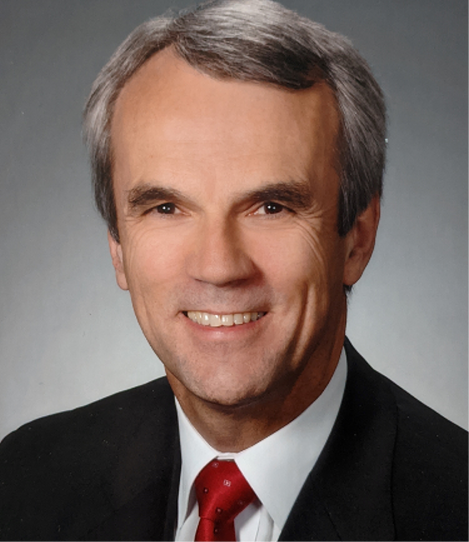 Under the leadership of Justice Lennox, NJI’s Executive Director from 2007 to 2014, the Institute solidified its reputation as a world leader in experiential judicial education. With a staff of 50 and dozens of judge volunteers from across Canada, the NJI continued to broaden the range of education programs and resources available to the Canadian judiciary and to strengthen its international work. While the NJI had begun to offer online courses in 1999, Justice Lennox oversaw the redesign of NJI’s website and the growth of its digital education offerings, including online programs and electronic bench books. Fluent in both English and French, Justice Lennox was a strong advocate for bilingual programs, materials, and communications with judges. He also promoted the continuing engagement of provincially appointed judges and provincial courts in NJI programming. Before joining the Institute, Justice Lennox was Chief Justice of the Ontario Court of Justice (OCJ) from 1999 to 2007. He has taught and lectured in the areas of judicial education, criminal law, advocacy, and court administration. In addition to serving as a per diem judge of the OCJ, Justice Lennox has been a Judge in Residence at the University of Ottawa Faculty of Law.
Under the leadership of Justice Lennox, NJI’s Executive Director from 2007 to 2014, the Institute solidified its reputation as a world leader in experiential judicial education. With a staff of 50 and dozens of judge volunteers from across Canada, the NJI continued to broaden the range of education programs and resources available to the Canadian judiciary and to strengthen its international work. While the NJI had begun to offer online courses in 1999, Justice Lennox oversaw the redesign of NJI’s website and the growth of its digital education offerings, including online programs and electronic bench books. Fluent in both English and French, Justice Lennox was a strong advocate for bilingual programs, materials, and communications with judges. He also promoted the continuing engagement of provincially appointed judges and provincial courts in NJI programming. Before joining the Institute, Justice Lennox was Chief Justice of the Ontario Court of Justice (OCJ) from 1999 to 2007. He has taught and lectured in the areas of judicial education, criminal law, advocacy, and court administration. In addition to serving as a per diem judge of the OCJ, Justice Lennox has been a Judge in Residence at the University of Ottawa Faculty of Law.
The Honourable Lynn Smith, OC, QC (2005 - 2006)
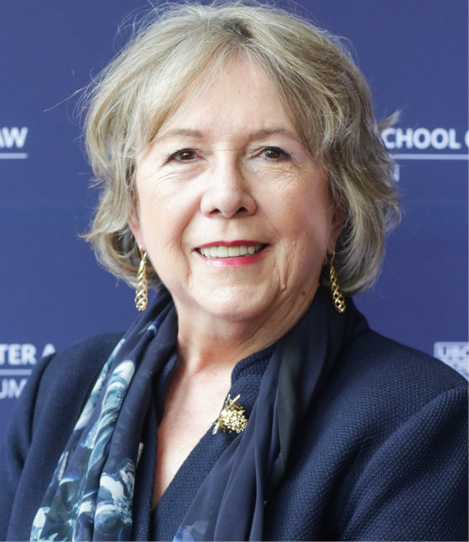 Professor Smith joined the NJI as Executive Director from September 2005 to December 2006. She was on secondment from the Supreme Court of British Columbia, where she served as a Justice from 1998 until she retired in 2012. Her prior involvement with the NJI had included serving on the NJI’s Board of Directors from 1996 to 2001, and earlier on its Advisory Committee developing social context education programs. Her contributions to judicial education began with the Western Judicial Education Centre, developing gender equality programs for provincial court judges in the early 1990s. Professor Smith played a key role in creating and presenting two NJI flagship seminars—its Charter and Evidence programs—and made many presentations at NJI seminars on a wide variety of topics. She has been involved in the Seminar for New Federally Appointed Judges since its inauguration. She also participated as a judicial expert in international judicial training programs. Faculty member at UBC Law from 1981 to 1998 and Dean from 1991 to 1997, she published in the fields of civil litigation and evidence, human rights, Charter equality rights, and women’s equality. She is an Honorary Professor at the UBC Faculty of Law, currently teaching a seminar on Charter Litigation. In December 2020, she was appointed an Officer of the Order of Canada, in part in recognition for her work in judicial education.
Professor Smith joined the NJI as Executive Director from September 2005 to December 2006. She was on secondment from the Supreme Court of British Columbia, where she served as a Justice from 1998 until she retired in 2012. Her prior involvement with the NJI had included serving on the NJI’s Board of Directors from 1996 to 2001, and earlier on its Advisory Committee developing social context education programs. Her contributions to judicial education began with the Western Judicial Education Centre, developing gender equality programs for provincial court judges in the early 1990s. Professor Smith played a key role in creating and presenting two NJI flagship seminars—its Charter and Evidence programs—and made many presentations at NJI seminars on a wide variety of topics. She has been involved in the Seminar for New Federally Appointed Judges since its inauguration. She also participated as a judicial expert in international judicial training programs. Faculty member at UBC Law from 1981 to 1998 and Dean from 1991 to 1997, she published in the fields of civil litigation and evidence, human rights, Charter equality rights, and women’s equality. She is an Honorary Professor at the UBC Faculty of Law, currently teaching a seminar on Charter Litigation. In December 2020, she was appointed an Officer of the Order of Canada, in part in recognition for her work in judicial education.
The Honourable George Thomson (2000 - 2005)
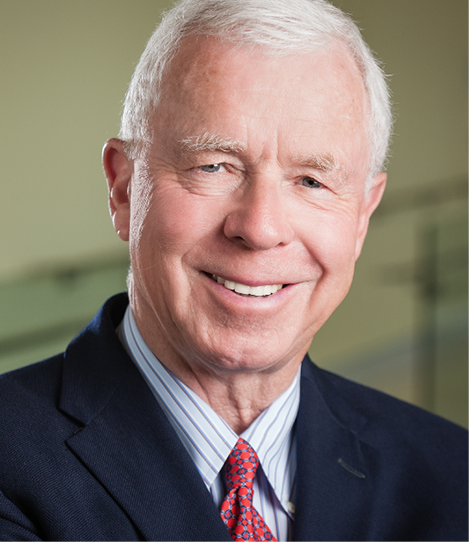 The Honourable George Thomson served as NJI’s Executive Director from 2000 to 2005 and has continued to contribute to judicial education both in Canada and abroad since that time. As Executive Director, Mr. Thomson greatly expanded the NJI curriculum, introduced skills-based courses focused on a wide range of essential judicial skills, and oversaw implementation of NJI’s initial social context programming. He also established the International Cooperation Group, which has taken NJI expertise to many countries across the world, and supported that work as Senior Director, International Programs, until 2016. He was on the Executive of the International Organization for Judicial Training; NJI hosted the IOJT’s second international conference in Ottawa. In addition to his judicial career, Mr. Thomson was a deputy minister in four Ontario ministries and the federal government. He also served as Chair of the Ontario Citizens’ Assembly on Electoral Reform and has led or facilitated major policy studies on income support, access to justice, and the status of international medical graduates.
The Honourable George Thomson served as NJI’s Executive Director from 2000 to 2005 and has continued to contribute to judicial education both in Canada and abroad since that time. As Executive Director, Mr. Thomson greatly expanded the NJI curriculum, introduced skills-based courses focused on a wide range of essential judicial skills, and oversaw implementation of NJI’s initial social context programming. He also established the International Cooperation Group, which has taken NJI expertise to many countries across the world, and supported that work as Senior Director, International Programs, until 2016. He was on the Executive of the International Organization for Judicial Training; NJI hosted the IOJT’s second international conference in Ottawa. In addition to his judicial career, Mr. Thomson was a deputy minister in four Ontario ministries and the federal government. He also served as Chair of the Ontario Citizens’ Assembly on Electoral Reform and has led or facilitated major policy studies on income support, access to justice, and the status of international medical graduates.
The Honourable Dolores M. Hansen (1993 - 1999)
.png) The Honourable Dolores Hansen became NJI’s Executive Director in 1993 after serving as its Associate Executive Director for a year. During her tenure from 1993 to 1999, the Institute’s programming and size expanded, as did its focus on social context education. In 1994, under her leadership, the NJI held an intensive two-week study program that, for the first time, brought together both provincially appointed and federally appointed judges in equal number. This milestone program served as a template for future all-court seminars, where judges from different levels of court could share vital information. Ms. Hansen was appointed to the Provincial Court of Alberta in 1982 and to the Federal Court of Canada in 1999. Throughout her legal career, Ms. Hansen has been a dedicated educator and speaker, sharing her expertise in areas such as youth justice and child welfare. She has also promoted international judicial education through her committee work. In June 2006, she was appointed a judge of the Administrative Tribunal of the ILO.
The Honourable Dolores Hansen became NJI’s Executive Director in 1993 after serving as its Associate Executive Director for a year. During her tenure from 1993 to 1999, the Institute’s programming and size expanded, as did its focus on social context education. In 1994, under her leadership, the NJI held an intensive two-week study program that, for the first time, brought together both provincially appointed and federally appointed judges in equal number. This milestone program served as a template for future all-court seminars, where judges from different levels of court could share vital information. Ms. Hansen was appointed to the Provincial Court of Alberta in 1982 and to the Federal Court of Canada in 1999. Throughout her legal career, Ms. Hansen has been a dedicated educator and speaker, sharing her expertise in areas such as youth justice and child welfare. She has also promoted international judicial education through her committee work. In June 2006, she was appointed a judge of the Administrative Tribunal of the ILO.
The Honourable T. David Marshall [deceased, 2009] (1988 - 1992)
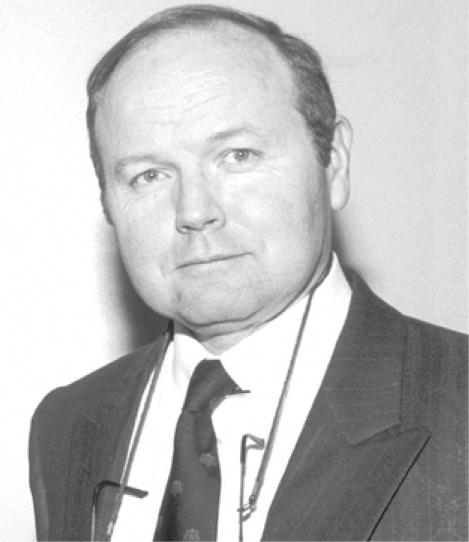 Justice Marshall, NJI’s founding Executive Director (1988 to 1992), practised both medicine and law during his illustrious career. First appointed to the bench in 1983—as Justice of the Supreme Court of the Northwest Territories and Yukon, and Judge of the Court of Appeal Northwest Territories and Yukon—Justice Marshall played a key role in the establishment of Canada’s primary judicial education institution. He was appointed to the Ontario Court of Justice in 1990 and became a Justice of the Ontario Superior Court of Justice in 1999. Justice Marshall was also a professor, an author of several books on medicine and the law, a renowned public speaker, and Chair of Human Research Ethics Committee of the Medical Research Council of Canada for 14 years. He also served as a missionary doctor in Ecuador for the Oriental Mission Society; as director of the Royal Hamilton Flying Club; as founding president of the Canadian College of Legal Medicine; and as chairman of the Conference of Law Reform Commissions of Canada. He was named Colonel Commandant of the Canadian Forces Medical and Dental Branch after being a reservist for more than four decades.
Justice Marshall, NJI’s founding Executive Director (1988 to 1992), practised both medicine and law during his illustrious career. First appointed to the bench in 1983—as Justice of the Supreme Court of the Northwest Territories and Yukon, and Judge of the Court of Appeal Northwest Territories and Yukon—Justice Marshall played a key role in the establishment of Canada’s primary judicial education institution. He was appointed to the Ontario Court of Justice in 1990 and became a Justice of the Ontario Superior Court of Justice in 1999. Justice Marshall was also a professor, an author of several books on medicine and the law, a renowned public speaker, and Chair of Human Research Ethics Committee of the Medical Research Council of Canada for 14 years. He also served as a missionary doctor in Ecuador for the Oriental Mission Society; as director of the Royal Hamilton Flying Club; as founding president of the Canadian College of Legal Medicine; and as chairman of the Conference of Law Reform Commissions of Canada. He was named Colonel Commandant of the Canadian Forces Medical and Dental Branch after being a reservist for more than four decades.